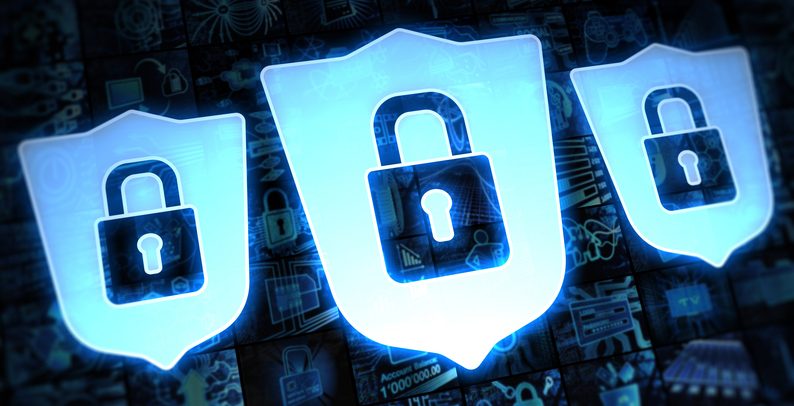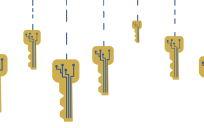![]()
Information technologies are everywhere. We are living in a new word with huge amounts of data. Personal, scholar, professional, corporate, we have a lot of information in our lives.
Most of that information now is in digital format. We have it on our computers and mobile devices most of the data we use in our day to day lives. Bank accounts, Social Security number, employee id, driver cards, etc. We also have a lot of documents, images, videos, and more.
It is usual to have one or more e-mail accounts, at least one phone line, internet access in our mobile devices and in our computers. So we are exposed to theft or loss of our information. And in most cases, that information is crucial for our daily activities.
So, thinking about it… information security should be one of our priorities. And not too many people are used to follow basic information security practices. So here I propose, ten good ways to secure your data:
Watch out for attachments in your email.
If you do not know the sender, do not open it. With this way of thinking, you’d can stay safe for a long time from strange address emails or file attachments like .pps, .zip, .exe, among others. Be very careful also with links to unknown servers. This is one of the most used methods to break our security.
Update your system software periodically.
The more recent, the more resistant. This should be a maxim. if you are using an application that is out of date for three months, you have three months of unresolved vulnerabilities, which will make your system more prone to malware. In the case of your corporate computer equipment, ask the support guys to update your system and applications, they should be doing this already anyway.
Create strong passwords and change them every few months.
More difficulty, less predictability. It is important to follow the rules for creating strong passwords. Having just one and unique password for all your accounts it is also a bad idea. You should be using long passwords with the combination of Uppercase, lowercase, numbers and special characters. Don’t be lazy and create passwords hard to break. More than 10 characters will be better.
Use anti-virus and anti-malware applications.
Having an active antivirus is always more effective and secure than a computer without it. Every computer needs these kind of applications. We are always under the risk of virus infection and the primary way to avoid that is by using this software. If you are using a computer inside your organization, be sure to ask the tech support guys for this valuable tools. But also on your personal computer, make the investment, a few dollars can help you keep your information safe.
Close your network/computer/information system sessions when finished.
Do not let unattended computers. If we have user and passwords for our equipment, network or information systems, it’s because there is a need to keep them protected. If we leave our computer alone and we are not attentive, someone can use it and create problems. And with our accounts logged in, we will be the ones held responsible for these problems. But there is an extra reason for being extra careful. I can lose information in the hands of those who can use my equipment. So, close your sessions.
Avoid private operations on open and public networks.
Share the connection, but not the data. Be very careful of open networks. Most of them are prepared for simple access and that means vulnerabilities. So try to avoid to make personal operations (As banks transactions) in those kinds of Internet shared connections.
Activate your system’s Firewall
A Firewall can be configured completely to give a level of protection that can make you feel safer. If you are on a corporate network, ask your tech support people for instructions or help for activating this important tool.
Disconnect from the internet when you do not need it
With less exposure, a lower infection rate is possible: there are lots of exceptions, but most infections occur when computers are connected to the network, as spyware and malware perform their actions communicating with servers or forwarding information using open ports in your connection. So, a good advice could be: disconnect if it is not indispensable to be online.
Beware of Instant Messaging Applications
Instant messaging applications are not safe for the exchange of corporate messages. The reason is simple: you do not have a guarantee of what these applications do with the messages, do not know where the backups are and do not control the communication protocols. Be also aware of your personal communications. There are some apps that can be a little safer, but no one offers a 100% confidentiality guarantee.
Backup your important data.
Prevention is better: In the event of a situation where you lose data due to lack of security policies on your computer, the best way to recover it is from a trusted copy. There is no other tool that beats the security you get from the existence of your important data in another disk or service in the cloud. Sometimes one copy is not enough. So try to combine your backup media using disk drives (any kind) and keeping an online copy in one of the many backs up services in the cloud. Even some corporations have their own cloud storage. Make the backup process a ritual, for example, Backup every Monday. Be constant and careful. Backups can save the day.
These were some examples of vulnerabilities that we may experience daily and how to avoid information lost. There are too many other dangers and threats so try to always be aware of where your data is. It will help you avoid headaches.
Sergio Yorick is part of the GovLoop Featured Blogger program, where we feature blog posts by government voices from all across the country (and world!). To see more Featured Blogger posts, click here.





Leave a Reply
You must be logged in to post a comment.